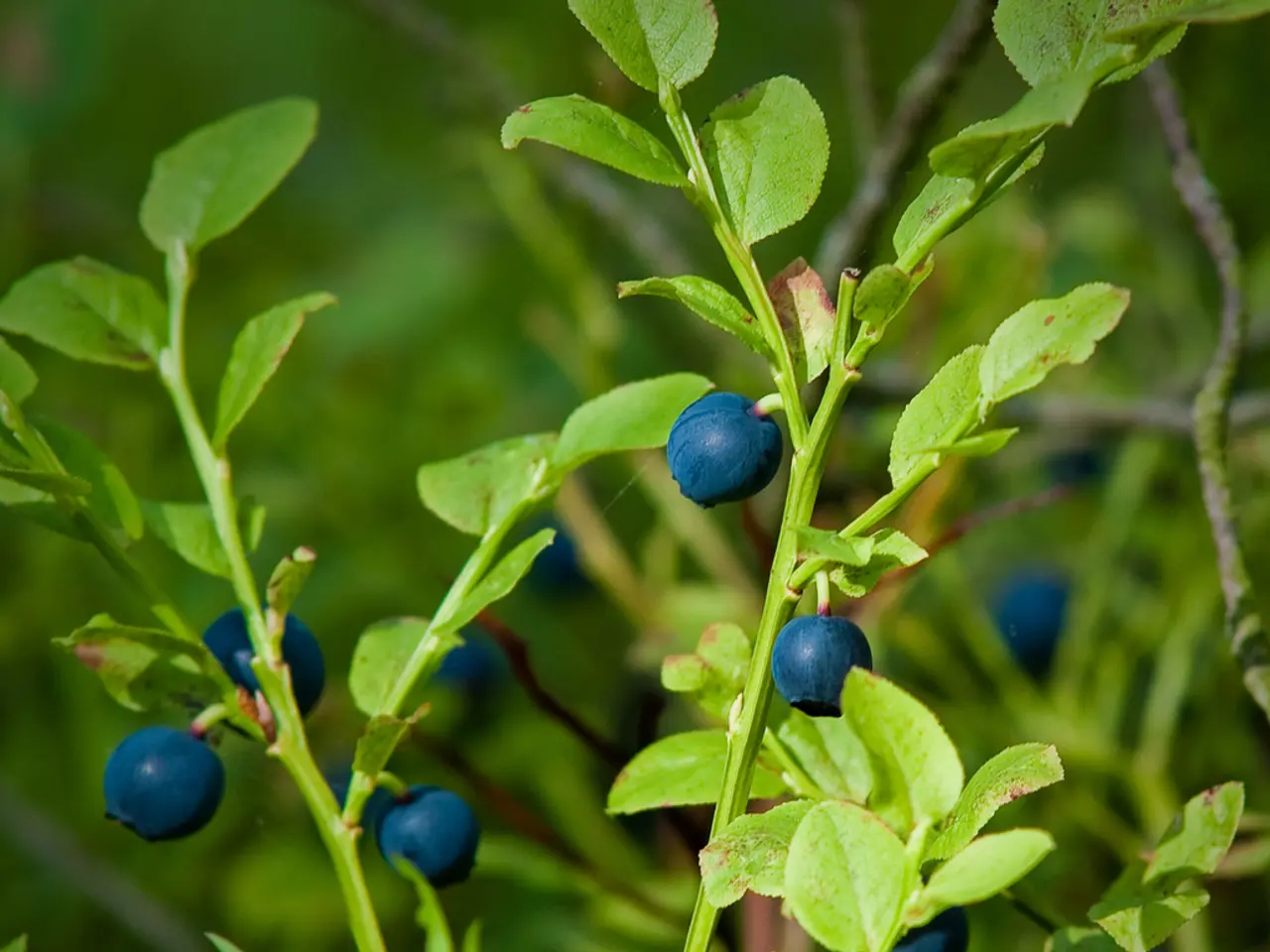August Pruning, Fertilizing, and Disease Prevention for Cedar and Fir Trees
In August, proper agriculture and timely nutrition are crucial for a healthy winter harvest and disease prevention of raspberries and blackberries. Here's a guide on how to prune, water, mulch, feed, and protect these berry bushes for a successful crop next season.
Pruning
After harvesting in August, remove old, fruited canes at the base of raspberry bushes to stimulate growth of new productive canes for next year. This removal of old stems prevents disease buildup and promotes airflow. For raspberries, cut back canes that have fruited since they are biennial. If you have a shorter growing season, light pruning is recommended to avoid encouraging new growth that cannot harden before frost.
Blackberry canes should also be pruned to simplify winter laying, with long canes (up to 2m) being easier to bend and tie down. Old, fruited canes should be removed at the base.
Watering
Ensure plants are well-watered during dry spells in August, especially if newly planted. Established plants generally need little extra water. Keep soil consistently moist but not waterlogged to promote healthy roots.
Mulching
Refresh mulch with 2 to 3 inches of organic material such as compost or straw to retain soil moisture, suppress weeds, and help in nutrient retention. Using lighter-colored mulch can prevent soil overheating in the August sun.
Feeding
If plants are growing in well-mulched soil, additional feeding is generally not required. However, if harvests are poor or plants show nutrient deficiencies, apply an organic granular fertilizer in early spring. August is not generally the time to fertilize heavily.
Protection and Disease Prevention
Remove old canes to reduce disease risk and improve air circulation. Protect fruits from birds with netting raised on poles to prevent entanglement while safeguarding the crop. Avoid excessive pruning that encourages tender new growth vulnerable to diseases before winter. Keep the area clean of dropped fruits and debris to minimize fungal disease pressure.
Additional Tips
Consider soil testing after fruiting to check nutrient status and plan amendments for next year’s season.
These steps in August prepare your raspberries and blackberries to overwinter in good condition, ensuring a vigorous, healthy crop next season free from many common diseases.
In August, prune blackberry canes for easier winter laying and removal of old, fruited canes. Mulch around the plants with 2 to 3 inches of organic material, such as compost or straw, to retain soil moisture and prevent soil overheating.




